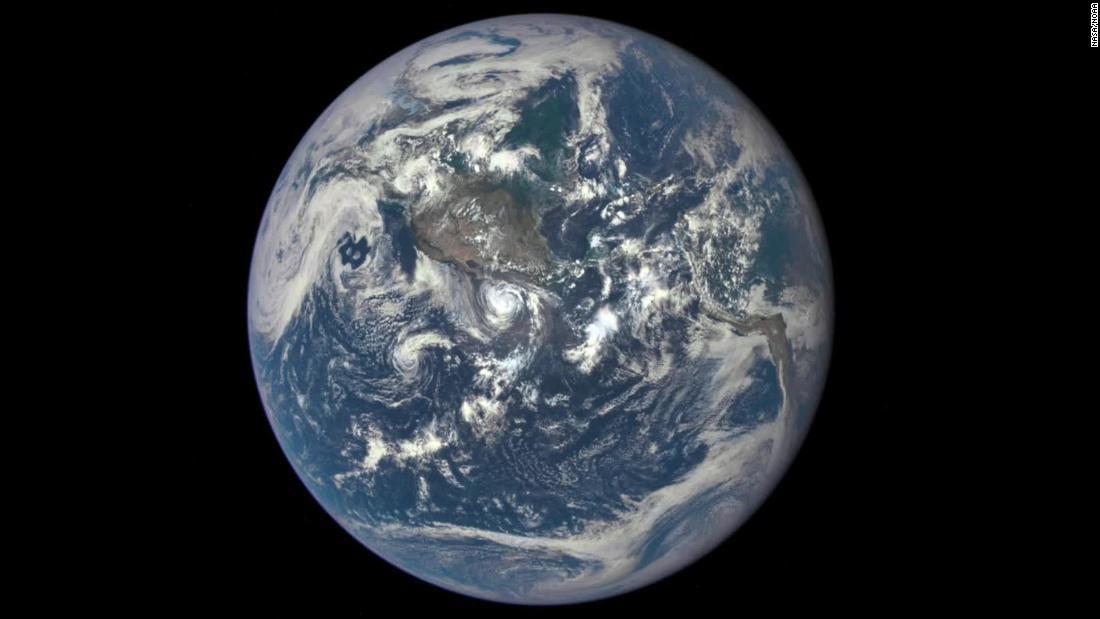(CNN) When you hear the words “city killer” and “asteroid” in the same sentence, you’d be forgiven for thinking something bad is about to happen.
But fear not. An asteroid capable of causing significant damage if it struck a populated area came somewhat unusually close to our planet this weekend, passing harmlessly between the orbits of Earth and the Moon.
Saturday evening, Asteroid 2023 DZ2 A distance of 105,633 miles (170,000 kilometers) will be flown. The Moon, by comparison, is 238,855 miles (384,400 kilometers) from Earth.
The asteroid dubbed the “City Killer” — which measures 40 to 100 meters (131 to 328 feet) — will do no such thing. But the flyby is still significant, experts say.
“What’s unusual about this object is that it’s very rare, that an object of this size passes so close to Earth. It happens about once every 10 years,” Richard Moisle, ESA’s head of the Planetary Protection Office, told CNN on Friday.
“But this is a once-in-a-decade opportunity to get some really good close-up measurements on a relatively large body, and that effect is relatively easy to measure,” he said.
Near-Earth objects are asteroids and comets with orbits that bring them within 120 million miles of the Sun, meaning they “can pass through Earth’s orbital vicinity.” According to to NASA.
Experts will illuminate the 2023 DZ2 asteroid with radar and use it to get precise measurements of the object, Moissl added.
‘City Killer’ label
Moisl said the phrase “city killer” is coined by experts to refer to two known asteroid impacts.
when The Tunguska Incident In 1908, an asteroid “sent a shock wave and leveled 2,000 square kilometers of forest” in Siberia, Moisl said. Also, about 50,000 years ago, between Flagstaff and Winslow on the Colorado Plateau, an iron asteroid struck what is now Arizona, creating a crater 0.75 miles (1.2 kilometers) across and 600 feet (180 meters) deep.
When space rocks enter Earth’s orbit and hit the ground, “if they happen in uninhabited areas, then [it’s] Not too worried,” Moisl said.
“If we ever find one of these impact sites, the first step is to figure out where it’s going to hit Earth, because if it’s in the middle of the ocean, in the middle of the desert, it’s no big deal. We have to make sure there’s no air traffic or people in that area,” he said. He also said.
“That’s where the [term] From ‘City Killer’. If such an object were to go directly over a city, this would be a problem: the entire city would be heavily damaged and would have to be evacuated.
“City Killer is a good slogan. It’s not a bad description. That’s why we didn’t throw it out the window completely. Because it says in two words: It’s dangerous enough to destroy a city.” He explained.
However, that is not the case with the 2023 DZ2. An asteroid in a heliocentric orbit, meaning an orbit around the sun and an ellipse, will “continually orbit the sun,” he said.
There are currently more than 1,450 near-Earth objects.Hazard list,” Moissl said, adding that “they are added whenever there is even the slightest possibility of an impact [Earth] In the next 100 years.”
“These objects are usually observed a lot. And the measurements are refined,” he added.

